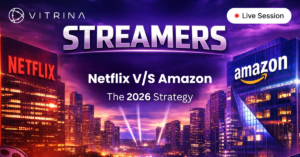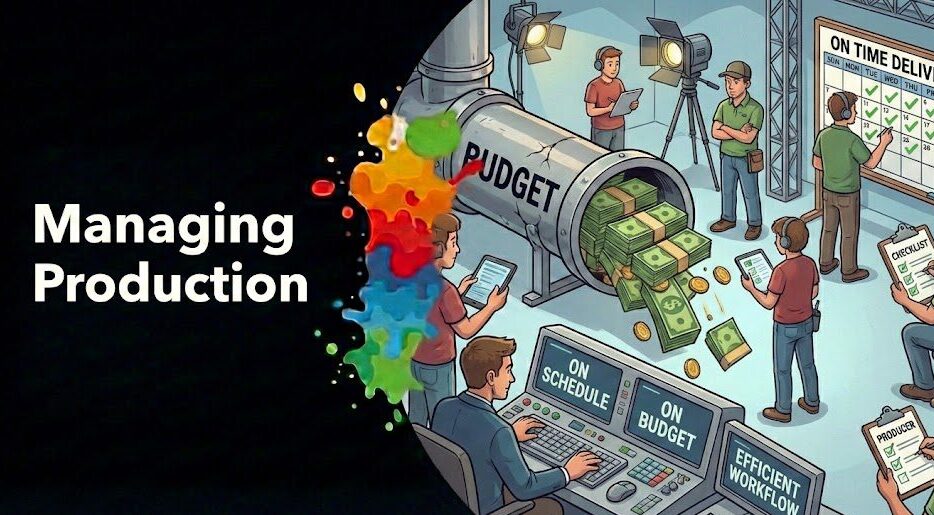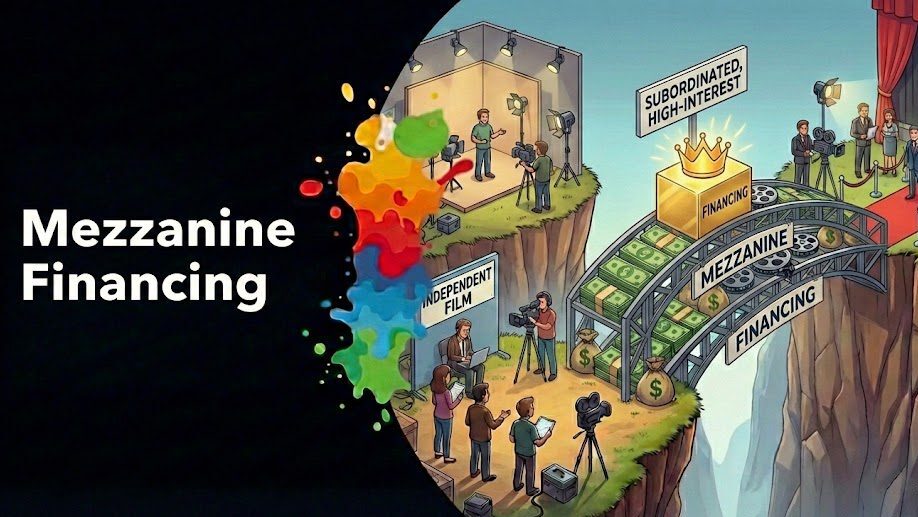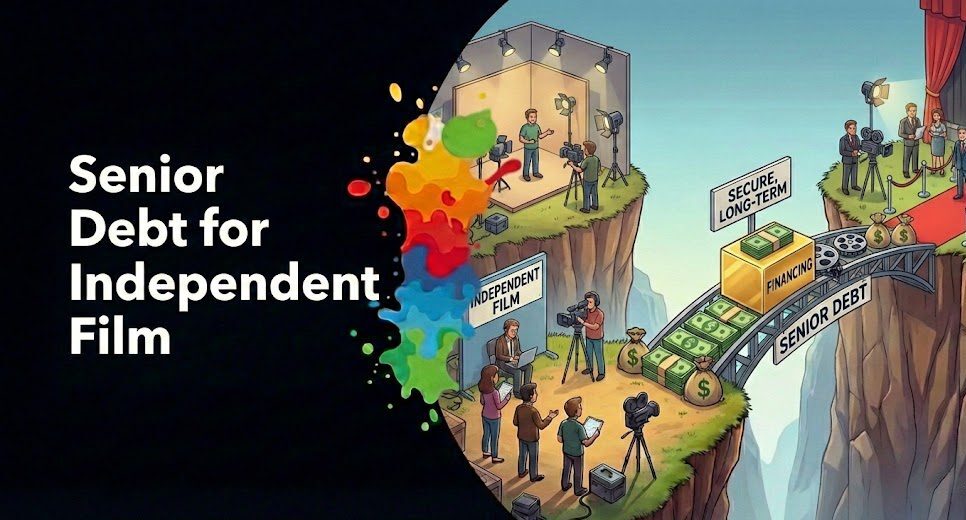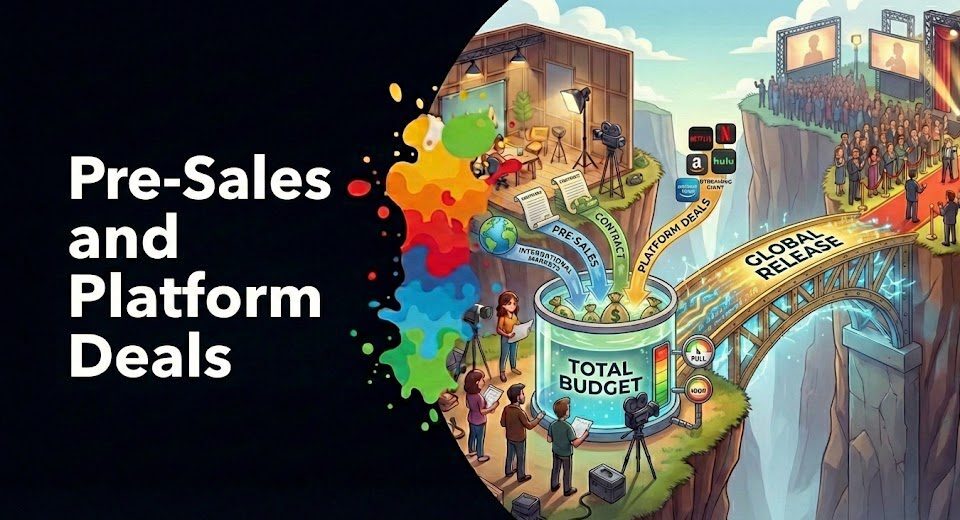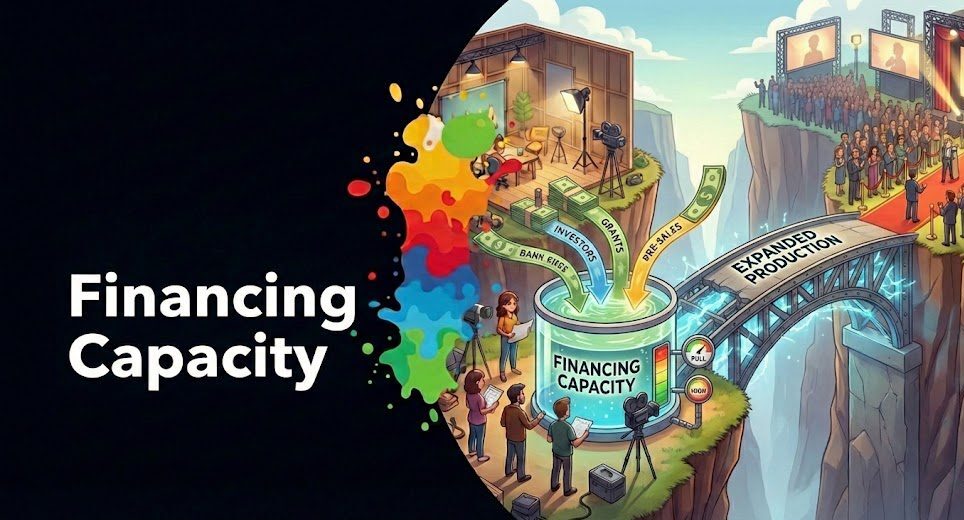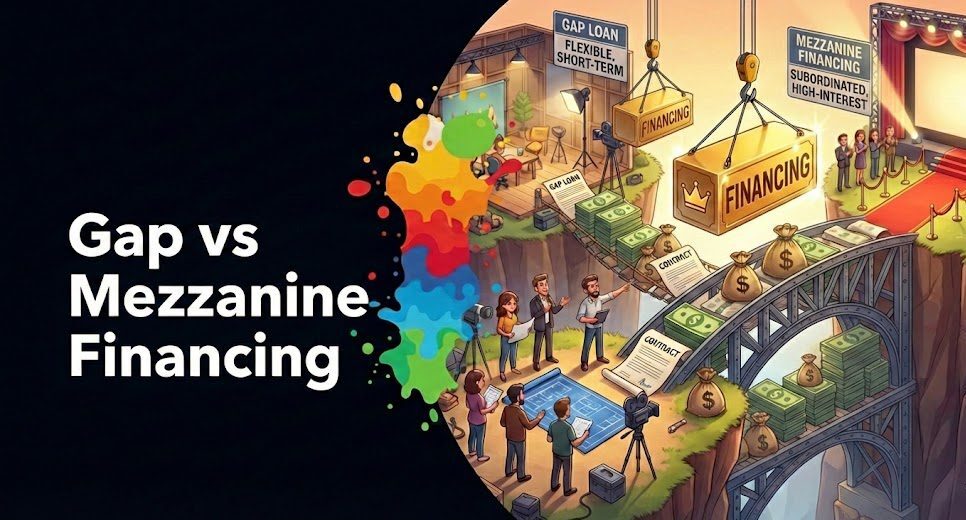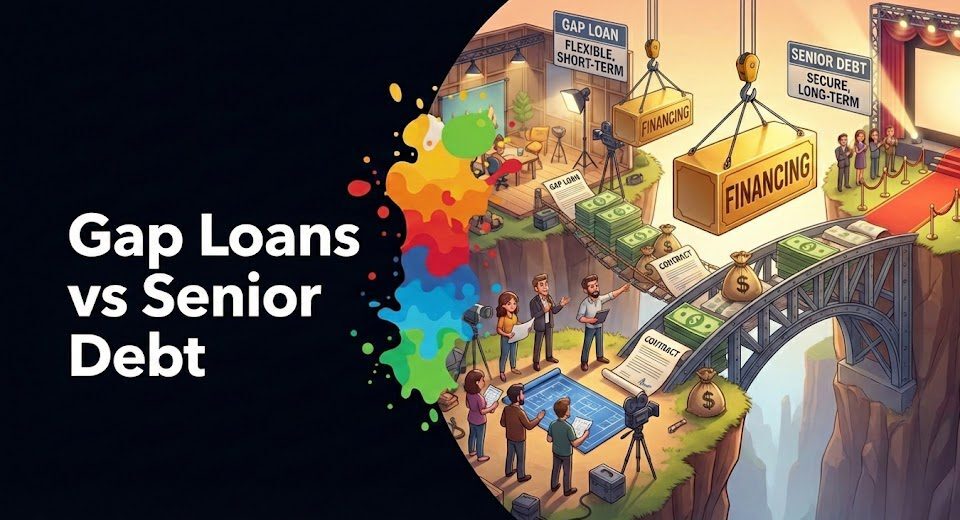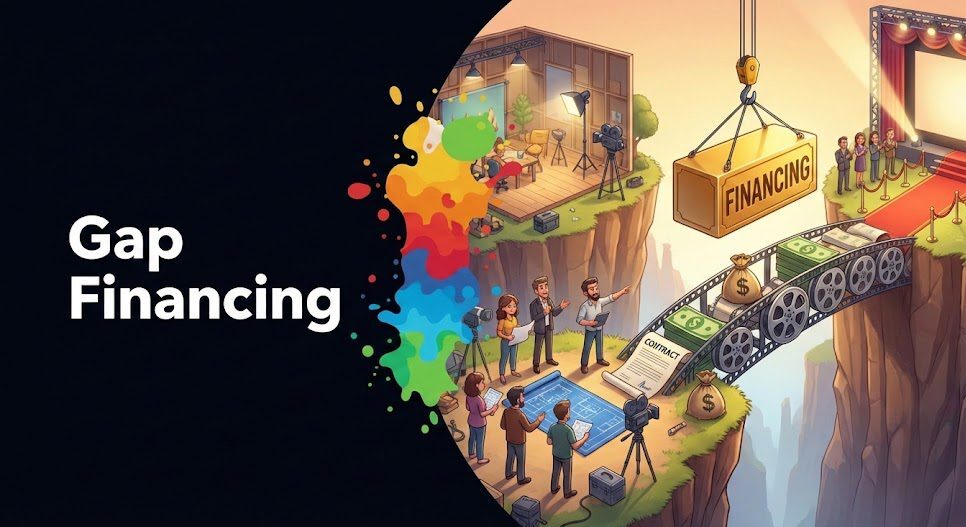Introduction
Welcome to the vibrant world of Brazilian Portuguese dubbing! If you’re looking to captivate one of the world’s most enthusiastic audiences, you’ve come to the right place. Brazil’s dubbing industry is renowned for its exceptional quality, talented voice actors, and deep cultural understanding, making it a prime destination for localizing international content.
Whether you’re a film producer, a game developer, an animation studio, or a content distributor, understanding the landscape of top dubbing studios in Brazil is crucial for your success. This article will guide you through the nuances of the Brazilian dubbing scene, helping you identify what makes a studio stand out and spotlighting some of the leading names in the business. You’ll gain insights into their processes, the importance of cultural adaptation, and how to choose the perfect partner for your project. Get ready to discover how high-quality Brazilian Portuguese dubbing can unlock a massive and engaged audience for your content.
Table of content
- Introduction
- Key-Takeaways
- The Allure of Brazilian Dubbing: A Global Hotspot
- Choosing Your Champion: What Defines a Top Brazilian Dubbing Studio?
- Spotlight on Brazil’s Premier Dubbing Studios
- The Journey of Sound: Brazil’s Dubbing Workflow Unveiled
- The Horizon of Voice: Future Trends in Brazilian Dubbing
- Finding Your Brazilian Dubbing Partner with Vitrina.ai
- Conclusion
- FAQs
Key Takeaways
| Aspect | Insight |
| Market Significance | Brazil is a leading global market for dubbed content, driven by a large population and cultural preference. |
| Quality Factors | Top studios offer exceptional voice talent, advanced technical facilities, and deep expertise in cultural adaptation. |
| Studio Selection | Choosing the right studio involves evaluating portfolios, technical specs, client testimonials, and their approach to localization. |
| Industry Leaders | Brazil hosts numerous acclaimed studios, including veterans and innovative newcomers catering to diverse content types. |
| Process Understanding | A successful dubbing project involves meticulous translation, adaptation, recording, direction, and quality control. |
| Future Trends | The rise of streaming, AI advancements, and growth in gaming are shaping the future of Brazilian dubbing. |
| Vitrina.ai’s Role | Platforms like Vitrina.ai simplify finding and connecting with qualified top dubbing studios in Brazil. |
What makes Brazilian Portuguese dubbing so popular?
Several converging factors contribute to the widespread popularity and acclaim of Brazilian Portuguese dubbing. Firstly, the talent pool in Brazil is both vast and exceptionally skilled. Many voice actors come from theatrical backgrounds, bringing a depth of performance and emotional range to their roles that truly resonates with audiences. They are not merely translating lines; they are re-interpreting performances for a new cultural context. Secondly, there’s a strong cultural affinity for dubbed content. Unlike some regions where subtitles are preferred, a large segment of the Brazilian audience, spanning various age groups and demographics, actively seeks out dubbed versions.
This preference is partly historical, as television played a crucial role in popularizing dubbed foreign content for decades. Thirdly, the quality of adaptation is generally very high. Brazilian dubbing studios and their teams of translators, adaptors, and directors pay meticulous attention to linguistic nuances, cultural references, humor, and, critically, lip-sync. This ensures that the dubbed dialogue feels natural and seamless, enhancing the viewing experience rather than detracting from it. The industry also benefits from a robust infrastructure, with numerous studios equipped with state-of-the-art technology. Finally, the passion Brazilians have for entertainment – be it films, TV shows, animations, or games – fuels the demand for high-quality localization. They expect dubbed content to be on par with the original, and the industry largely delivers on this expectation, creating a virtuous cycle of demand and quality supply. This ecosystem ensures that Brazilian dubbing industry leaders continue to thrive and innovate.
Factors contributing to popularity:
-
- A large, passionate domestic audience that often prefers dubbed content over subtitles.
- A highly skilled and extensive pool of professional voice actors with strong acting capabilities.
- A long-standing tradition and high standards for script adaptation and lip-sync accuracy.
- Cultural acceptance and celebration of voice actors, who often become well-known personalities.
- Investment in modern recording and mixing technology by leading studios.
- The significant influence of television, which historically broadcasted a large volume of dubbed international programs.
| Brazil’s Media Consumption Habits | Details |
| TV Dominance (Historically) | Traditional TV played a huge role in popularizing dubbed content across all age groups. |
| Streaming Growth | Rapid adoption of streaming services (Netflix, Disney+, etc.) has increased demand for dubbed content. |
| Preference for Dubbed Content | Surveys and viewership numbers consistently show a strong preference for dubbed versions. |
| Cinema Attendance | Dubbed versions of blockbuster films often outperform subtitled ones at the box office. |
| Youth Audience | Younger generations, particularly for animation and genre content, heavily consume dubbed media. |
Why is Brazil a preferred destination for dubbing services?
Brazil has firmly established itself as a preferred destination for companies looking to outsource dubbing to Brazil, and this is due to a compelling combination of artistic excellence, technical proficiency, and economic advantages. One of the primary drivers is the exceptional quality that Brazilian studios consistently deliver. This isn’t just about accurate translation; it’s about capturing the original intent, emotion, and cultural nuances of the source material and skillfully adapting them for a Brazilian audience. The country boasts a deep well of experienced voice actors, directors, and sound engineers who are masters of their craft. This artistic talent is backed by significant investment in dubbing studio facilities Brazil, ensuring that projects are handled with the latest audio technology for recording, mixing, and mastering. Beyond the quality, cost-effectiveness is another significant factor. While maintaining high standards, Brazilian dubbing services can often be more competitively priced compared to studios in North America or Western Europe, offering excellent value for money without compromising on the final product.
This makes it an attractive proposition for both large-scale blockbuster projects and more budget-conscious independent productions. Furthermore, the Brazilian dubbing industry is well-organized and capable of handling large volumes of work with quick turnaround times, a crucial aspect in today’s fast-paced media landscape, especially with the demands of global streaming platform releases. The Brazilian dubbing market trends also show a continuous adaptation to new media formats, including interactive content for games and specialized audio services like audio description for the visually impaired, showcasing the industry’s versatility. The established infrastructure, combined with a proven track record of successfully localizing some of the world’s biggest entertainment franchises, gives international clients confidence when choosing Brazil for their dubbing needs. This reliability and consistent performance are key reasons why Brazil remains a top choice for global content localization.
Advantages of choosing Brazil for dubbing:
-
- Access to a large and highly skilled talent pool of voice actors, directors, and technicians.
- Competitive pricing compared to other major dubbing hubs, offering excellent value.
- High standards of linguistic and cultural adaptation, ensuring authentic localization.
- Well-equipped studios with modern technology capable of handling diverse project requirements.
- Proven track record with major international content creators and distributors.
- Scalability to manage large volumes of content, crucial for streaming services and TV networks.
- Understanding of various genres, from live-action drama and comedy to animation and gaming.
Choosing Your Champion: What Defines a Top Brazilian Dubbing Studio?
Selecting the right dubbing studio in Brazil is a critical decision that can significantly impact how your content is received by the local audience. It’s not merely about translating words; it’s about recreating an experience, preserving artistic intent, and ensuring cultural resonance. A top-tier studio distinguishes itself through a combination of artistic talent, technical prowess, robust processes, and a deep understanding of the local market. When you begin your search, you’re looking for a partner who can seamlessly blend creative performance with technical precision.
This means scrutinizing their roster of top-rated dubbing artists Brazil, their approach to casting, the quality of their studio facilities, and their methodologies for translation, adaptation, and quality control. Beyond these tangible assets, consider the studio’s reputation, their experience with content similar to yours, and their ability to communicate effectively and manage projects transparently. The ideal studio will act as an extension of your own production team, guiding you through the intricacies of the Brazilian market and ensuring that your content speaks authentically to Brazilian viewers. Making an informed choice requires careful evaluation of several key factors, moving beyond just price to consider the overall value and quality a studio brings to your project. Remember, the goal is to achieve a dub that feels so natural and engaging that audiences forget they are watching localized content. This level of immersion is the hallmark of a truly exceptional Brazilian dubbing studio, capable of transforming your international production into a local favorite. The investment in finding such a partner will pay dividends in audience engagement and market success.
How to assess voice talent and casting processes?
The heart of any great dub lies in the performances of its voice actors, making the assessment of a studio’s Brazilian Portuguese voice talent and their casting processes paramount. When evaluating a studio, your first step should be to inquire about their roster of voice actors. Top studios maintain relationships with a diverse range of talent, encompassing various ages, vocal styles, and acting experiences, from seasoned veterans to promising newcomers. Request demo reels or samples of previous work, paying close attention to the clarity of diction, emotional range, versatility across different genres, and the ability to convey subtlety in performance. It’s not just about having a “good voice”; it’s about skilled acting. A reputable studio will have a meticulous casting process. They should be able to discuss how they match voice actors to specific characters, considering not only vocal similarity to the original actor but also the character’s personality, age, and emotional arc. Inquire about their auditioning procedures. Do they conduct custom auditions for key roles in your project?
This allows you to hear how potential actors interpret your specific characters. Furthermore, understand the role of the voice director. A skilled director is crucial in guiding actors to deliver performances that are not only technically accurate (e.g., lip-sync) but also emotionally compelling and consistent with the overall tone of the project. The studio’s ability to cast appropriately and direct effectively will largely determine the authenticity and impact of the final dubbed version. Look for studios that pride themselves on their top-rated dubbing artists Brazil and can demonstrate a history of successful and memorable casting choices across various types of content, from dramatic feature films to comedic animations and intense video games.
Criteria for assessing voice talent and casting:
-
- Vocal Quality and Range: Clarity, diction, ability to modulate tone, and suitability for different character types.
- Acting Skills: Ability to convey emotion authentically, comedic timing, dramatic depth.
- Experience and Portfolio: Track record with similar projects, versatility across genres.
- Lip-Sync Capability: Naturalness in matching dialogue to on-screen lip movements.
- Studio’s Casting Methodology: How they identify and select talent for specific roles, including custom auditions.
- Quality of Voice Direction: The expertise of their directors in guiding actor performances.
- Diversity of Talent Pool: Access to voices for all ages, genders, and character archetypes.
| Key Voice Actor Attributes | Description |
| Authenticity | Believable portrayal of emotions and character motivations. |
| Versatility | Ability to perform in different genres and embody diverse characters. |
| Technical Skill | Excellent diction, breath control, and microphone technique; strong lip-sync ability. |
| Consistency | Maintaining character voice and energy throughout a project. |
| Coachability | Willingness to take direction and adapt performance as needed. |
| Professionalism | Punctuality, reliability, and preparedness for recording sessions. |
What technical capabilities and infrastructure should you look for?
Beyond the artistic talent, the technical capabilities and infrastructure of a dubbing studio are fundamental to delivering a high-quality, professional product. When evaluating potential partners, it’s crucial to assess their dubbing studio facilities Brazil to ensure they meet industry standards and your project’s specific needs. Start by inquiring about their recording studios or booths. These should be acoustically treated to provide a clean, isolated sound environment, free from external noise and unwanted reverberations. Ask about the microphones, preamps, and audio interfaces they use; professional-grade equipment is essential for capturing pristine vocal recordings. The mixing capabilities of the studio are equally important. They should have dedicated mixing rooms equipped with high-quality monitoring systems and industry-standard Digital Audio Workstations (DAWs) like Pro Tools. The sound engineers must be experienced in mixing dialogue with existing M&E (Music and Effects) tracks, ensuring clarity, proper levels, and a seamless blend that matches the original production’s soundscape. Furthermore, inquire about their adherence to technical requirements for dubbing in Brazil and international deliverable specifications, such as loudness standards (e.g., EBU R128), file formats, and channel configurations (stereo, 5.1 surround sound, etc.). Security protocols are also a key consideration, especially when dealing with pre-release content.
The studio should have measures in place to protect your intellectual property, including secure data transfer and storage, and restricted access to sensitive materials. A studio that has invested in robust technical infrastructure and employs skilled technicians demonstrates a commitment to professionalism and quality that will be reflected in the final dubbed product. Don’t hesitate to ask for a virtual or, if possible, physical tour of their facilities and detailed specifications of their equipment and workflows.
Essential technical capabilities and infrastructure:
-
- Acoustically Treated Recording Booths: Ensuring clean audio capture without noise or echo.
- Professional-Grade Microphones and Preamps: For high-fidelity voice recording.
- Industry-Standard DAWs (e.g., Pro Tools): For recording, editing, and mixing.
- Experienced Sound Engineers and Mixers: Skilled in dialogue mixing, M&E integration, and mastering.
- High-Quality Monitoring Systems: For accurate sound assessment during mixing and QC.
- Capability for Various Audio Formats: Stereo, 5.1 surround sound, and potentially immersive audio formats.
- Adherence to Delivery Specifications: Understanding of loudness standards and client-specific requirements.
- Robust Quality Control (QC) Processes: For audio fidelity, lip-sync accuracy, and performance consistency.
- Secure Data Handling and Storage: To protect intellectual property.
- Backup and Disaster Recovery Systems: Ensuring project data integrity.
Why are localization nuances and cultural adaptation critical?
Effective international content dubbing Brazil goes far beyond simple word-for-word translation; it demands a profound understanding and sensitive handling of localization nuances and cultural adaptation. This is arguably one of the most critical aspects that differentiate a merely adequate dub from an exceptional one that truly connects with the Brazilian audience. Brazil, like any nation, has its own unique cultural tapestry woven from specific idioms, slang, humor, historical references, social customs, and sensitivities. A direct translation of dialogue that works perfectly in its original language can often fall flat, be misunderstood, or even cause offense if these cultural nuances are ignored. For instance, humor is notoriously difficult to translate. A joke that relies on wordplay or a specific cultural understanding in English might require complete re-imagination to elicit the same comedic effect in Brazilian Portuguese. Similarly, references to historical events, public figures, or pop culture phenomena specific to one country may need to be adapted or replaced with equivalent Brazilian references to maintain relevance and comprehension. The debate around subtitling vs dubbing in Brazil often highlights the immersive power of well-executed dubbing, which can make foreign content feel indigenous precisely because of successful cultural adaptation.
Top dubbing studios in Brazil employ skilled translators and script adaptors who are not only bilingual but also bicultural. They act as cultural bridges, ensuring that the essence of the original dialogue is preserved while making it accessible, relatable, and engaging for Brazilian viewers. This might involve slightly altering character interactions, adjusting levels of formality, or even re-contextualizing certain scenes to align with Brazilian cultural norms, all while maintaining fidelity to the original story and character integrity. The failure to properly adapt content can lead to viewer alienation and a perception of the content as “foreign” or “out of touch,” thereby undermining the very purpose of localization.
Importance of cultural adaptation:
-
- Enhanced Audience Engagement: Content that resonates culturally feels more personal and immersive.
- Accurate Conveyance of Humor: Jokes and comedic situations are adapted to land effectively with Brazilian sensibilities.
- Clarity of References: Cultural, historical, and pop culture references are made understandable.
- Avoidance of Misunderstandings or Offense: Sensitive topics or expressions are handled appropriately.
- Natural-Sounding Dialogue: Idioms and colloquialisms are translated into natural Brazilian Portuguese equivalents.
- Preservation of Original Intent: The core message and emotional impact of the content are maintained.
- Increased Relatability: Characters and situations become more relatable to the local audience.
- Stronger Market Performance: Culturally adapted content is more likely to succeed commercially
Spotlight on Brazil’s Premier Dubbing Studios
Brazil’s dubbing landscape is rich and varied, home to a multitude of studios that have earned acclaim both domestically and internationally. These establishments range from long-standing industry pillars with decades of experience to dynamic, newer players pushing the boundaries of audio localization. Each studio brings its unique strengths, specializations, and a portfolio of successful projects that speak to their capabilities. When looking for top dubbing studios in Brazil, it’s beneficial to explore a range of options to find the perfect fit for your content’s specific genre, tone, and technical requirements.
The studios highlighted here represent a cross-section of the excellence available, known for their commitment to quality, impressive talent rosters, and state-of-the-art facilities. From blockbuster films and beloved animated series to immersive video games and engaging television shows, these studios have played a pivotal role in bringing global entertainment to Brazilian audiences with finesse and cultural sensitivity. As you delve into this spotlight, consider how each studio’s profile aligns with your project’s vision. Many of these studios are concentrated in major production hubs like São Paulo and Rio de Janeiro, but their reach and impact are felt nationwide and across the Portuguese-speaking world. The dedication to craft is a common thread, ensuring that Brazilian Portuguese dubs continue to be recognized for their exceptional standard. This section aims to introduce you to some of the key names, providing a starting point for your journey into the world of Brazilian audio localization. Remember to conduct further research, request showreels, and engage in discussions to make your final selection.
Renowned Dubbing Houses: A Look at Industry Veterans
The Brazilian dubbing scene is anchored by several renowned dubbing houses that are true industry veterans, many of which have been shaping the art of voice-over in the country for decades. These studios have not only witnessed the evolution of dubbing from analog to digital but have often been at the forefront of adopting new technologies and refining techniques. Their long history translates into a deep understanding of the market, an extensive network of seasoned voice talent, and a wealth of experience across virtually every genre imaginable. Companies like Centauro Comunicações, known for its consistent quality and work on significant international titles, has built a formidable reputation over the years. Their portfolio often includes major studio films and popular television series, reflecting a high level of trust from global content distributors. Similarly,Moshi Media has established itself as a key player, offering a comprehensive suite of audio post-production services, including dubbing, that cater to diverse client needs. Their commitment to leveraging skilled professionals and appropriate technology allows them to handle complex projects with efficiency. Another distinguished name often cited is Alcateia Audiovisual(sometimes referred to as Alcateia Matilha Cultural), recognized for its artistic approach and contributions to dubbing significant cinematic and television content for the Brazilian audience.
These veteran studios typically boast robust quality control processes honed over many years and countless hours of recorded material, ensuring a polished final product. Their longevity is a testament to their adaptability, consistent delivery, and the strong relationships they’ve cultivated within the entertainment industry, both locally and internationally. When considering these established players, you’re often investing in a legacy of proven excellence and reliability, making them a solid choice for projects demanding the highest standards, and they are a key part of any list of dubbing studios Brazil. They truly represent some of the best Brazilian Portuguese dubbing companies.
Overview of strengths for veteran studios:
-
- Decades of experience in the dubbing industry.
- Extensive portfolios with high-profile international projects.
- Deep rosters of experienced and celebrated voice actors.
- Well-established workflows and rigorous quality control.
- Strong relationships with major content distributors and broadcasters.
- Proven ability to handle large-volume and complex dubbing projects.
| Studio Comparison (Example for Veterans) | Centauro Comunicações | Moshi Media | Alcateia Audiovisual |
| Primary Focus | Film & TV Series Dubbing | Comprehensive Audio Post, Dubbing | Artistic Dubbing, Cultural Projects |
| Years in Business (Approx.) | 30+ | 15+ | 20+ |
| Key Services | Dubbing, Mixing, Subtitling | Dubbing, Voice Over, ADR, Sound Design | Dubbing, Translation, Adaptation |
| Notable Aspect | Consistency on major titles | Modern facilities, diverse services | Strong directorial talent, quality adaptation |
Masters of the Craft: Studios Known for Quality and Innovation
Beyond the long-established veterans, Brazil is home to studios that have become synonymous with exceptional quality and innovative approaches to dubbing, truly acting as masters of the craft. These companies often combine experienced leadership with a forward-thinking mindset, pushing the envelope in terms of performance, technical execution, and client service. Dubrasil is a prominent example, highly regarded for its work on major animations, series, and films, and particularly noted for its commitment to training new generations of voice talent. Their focus on quality control and artistic direction ensures that their dubs are consistently praised by audiences and critics alike.
They are often sought out for professional dubbing services São Paulo, a major hub for the industry. Another studio that consistently delivers high-caliber work is Vox Mundi With a strong portfolio that spans various content types, Vox Mundi is recognized for its meticulous attention to detail, from script adaptation to final mix, ensuring an immersive and authentic experience for the viewer. Their ability to attract top-tier voice actors and technical staff contributes significantly to their reputation for excellence. While finding a consistently active direct website for Dublavídeo can be challenging as it has undergone changes and integrations over the years, its historical impact and the talent associated with it have left a significant mark on the industry, contributing to a legacy of quality dubbing for many well-known international productions. These studios understand that innovation isn’t just about technology; it’s also about evolving creative processes, fostering talent, and finding new ways to engage audiences. They are adept at handling the specific demands of different platforms, from traditional broadcast to the dynamic requirements of streaming services, making them some of the leading voice-over studios Brazil. Their dedication to maintaining high standards while adapting to the changing media landscape solidifies their position as leaders in the Brazilian dubbing industry.
Approach to quality and innovation:
-
- Emphasis on strong artistic direction and performance coaching.
- Investment in cutting-edge recording and mixing technologies.
- Development of specialized workflows for different content types (e.g., animation, live-action, gaming).
- Commitment to talent development and training programs.
- Proactive adaptation to new industry standards and client requirements.
- Focus on creating emotionally resonant and culturally relevant dubs.
The New Wave and Specialized Players in Brazilian Dubbing
The Brazilian dubbing landscape is continually enriched by a new wave of studios and specialized players who bring fresh perspectives, niche expertise, and often a more agile approach to projects. These studios are quick to adopt emerging technologies and cater to the evolving demands of the market, particularly in growth areas like animation dubbing Brazil and game dubbing services Brazil. Unidub (UniDub Brazil) has rapidly gained recognition for its high-quality work, particularly with major streaming platforms and blockbuster films, showcasing a modern approach to dubbing production and management.
They are known for handling high-stakes projects with professionalism and technical excellence. TV Group Digital(formerly TV Group International) offers a broad range of media services, with dubbing being a key component. Their experience with broadcast and digital media makes them a versatile partner for various types of content localization. Studios like ETC Filmes also contribute to the diverse ecosystem, often handling a mix of film, television, and corporate content, providing tailored solutions for their clients.
The name Grupo Stéreo might refer to various entities or a collective, but the essence is that there are numerous other facilities, perhaps smaller or more specialized, that contribute significantly to the overall capacity and diversity of the Brazilian dubbing industry. These specialized players might focus on specific genres like anime, children’s programming, or corporate narration, developing deep expertise in those areas. They often pride themselves on their flexibility, client-centric approach, and ability to deliver quality results, sometimes with faster turnarounds for specific types of projects. This dynamic segment of the market ensures that content creators have a wide array of choices, from large, full-service studios to more boutique operations, allowing them to find a partner that perfectly aligns with their project’s unique needs and budget. The innovation and energy these studios bring are vital for the continued growth and vibrancy of dubbing in Brazil.
Niche expertise and modern workflows:
-
- Specialization in high-growth areas like gaming, animation, and content for streaming platforms.
- Adoption of cloud-based workflows and remote collaboration tools.
- Focus on quick turnaround times without compromising quality for specific project types.
- Development of talent pools suited for contemporary content and character archetypes.
- Offering flexible and scalable solutions for independent creators and large distributors alike.
- Expertise in localizing interactive content and ensuring player immersion in games.
The Journey of Sound: Brazil’s Dubbing Workflow Unveiled
The transformation of foreign content into a seamless Brazilian Portuguese experience is a meticulous and multi-stage process. This journey of sound, from the original script to the final dubbed version on screen, involves a synergistic effort from a team of skilled professionals, including translators, adaptors, voice actors, directors, sound engineers, and quality control specialists. Understanding this workflow is essential for content creators and distributors, as it sheds light on the complexities involved in achieving a high-quality dub and helps in setting realistic expectations regarding timelines and collaboration. Each step is crucial, and a lapse in one area can impact the overall quality and authenticity of the final product.
Top dubbing studios in Brazil have refined their pipelines over years of experience, integrating both creative artistry and technical precision to deliver results that resonate with local audiences. The process typically begins with the careful handling of source materials and culminates in a polished audio track that is perfectly synchronized and emotionally engaging.
This intricate dance requires not only linguistic expertise but also a deep appreciation for storytelling, performance, and the technical nuances of audio production. Let’s delve into the key phases of this fascinating journey: translation and adaptation, the dubbing and recording sessions, and the critical final stages of quality control and mixing. Each phase plays an indispensable role in ensuring the final dubbed content feels effortlessly native to Brazilian viewers, thereby maximizing its impact and reach within this significant market. The attention to detail at every stage is what elevates Brazilian dubbing to its esteemed international reputation.
How are scripts translated and adapted for Brazilian audiences?
The initial and foundational stage of any dubbing project is the translation and adaptation of the original script, adhering to Translation and Adaptation Best Practices. This is far more intricate than a simple literal translation. The goal is to create a Brazilian Portuguese script that is not only linguistically accurate but also culturally relevant, natural-sounding, and, crucially, synchronized with the on-screen actors’ lip movements and timing. The process usually starts with a direct translation of the original script to ensure the core meaning and dialogue are captured.
However, this is just the first pass. An experienced script adaptor, often a specialist in this field, then takes over. This professional meticulously reviews the translated script against the video, focusing on several key aspects. Firstly, lip-sync: the adapted dialogue must match, as closely as possible, the mouth movements of the characters on screen. This often requires rephrasing sentences, choosing synonyms carefully, and sometimes slightly altering the dialogue while preserving the original intent. Secondly, cultural adaptation: as discussed earlier, idioms, slang, humor, and cultural references must be localized to resonate with a Brazilian audience.
This might involve replacing an untranslatable joke with an equivalent Brazilian one or substituting a culturally specific reference with something more familiar to local viewers. Thirdly, character voice and consistency: the adapted dialogue must reflect each character’s personality, social standing, and emotional state, ensuring consistency throughout the entire production. The adaptor also considers the rhythm, pacing, and natural flow of spoken Brazilian Portuguese to avoid stilted or unnatural-sounding lines. This meticulous work transforms a foreign script into one that feels indigenous, paving the way for convincing voice performances.
Steps involved in script translation and adaptation:
-
- Initial Literal Translation: Capturing the core meaning of the original dialogue.
- Lip-Sync Adaptation: Modifying dialogue to match actors’ on-screen mouth movements and timing.
- Cultural Localization: Adapting idioms, jokes, and cultural references for Brazilian understanding.
- Character Consistency: Ensuring dialogue aligns with each character’s personality and arc.
- Natural Flow and Rhythm: Crafting lines that sound like natural spoken Brazilian Portuguese.
- Director and Client Review: Often, the adapted script is reviewed for accuracy and artistic intent.
- Time-Coding: Marking script lines with precise timing cues for actors and directors.
| Common Adaptation Challenges | Solutions |
| Untranslatable Idioms/Puns | Re-create the intent with a culturally equivalent Brazilian expression or joke. |
| Complex Lip Movements | Creative rephrasing; focusing on key mouth shapes (bilabials, vowels). |
| Cultural References | Substitute with relevant Brazilian references or use a more universal expression. |
| Maintaining Original Tone | Careful word choice and collaboration with the dubbing director. |
| Pacing and Timing Differences | Adjusting sentence structure and length to fit the on-screen timing without losing meaning. |
| Sensitive Content | Adapting dialogue to be culturally appropriate and avoid offense, in consultation with the client. |
What does the typical dubbing and recording process entail?
Once the script has been meticulously translated and adapted, The Dubbing and Recording Workflow begins, moving the project into the studio for audio post-production Brazil. This phase is where the adapted script comes to life through the voices of talented Brazilian actors. The process is overseen by an experienced dubbing director, who plays a pivotal role analogous to that of a film director, guiding the actors’ performances to ensure they are emotionally resonant, tonally appropriate, and perfectly synchronized with the on-screen action. Actors typically record their lines individually in acoustically isolated recording booths. They watch segments of the video, often on a screen displaying the adapted script with timing cues (such as beeps or visual streamers), and deliver their lines to match the original actor’s performance and lip movements.
The director works closely with each actor, providing context for the scene, explaining character motivations, and offering feedback on intonation, pacing, and emotional delivery. Multiple takes are often recorded for each line to ensure the best possible performance is captured. The sound engineer present during the session is responsible for the technical aspects of the recording, ensuring optimal audio levels, clarity, and consistency. They manage the recording equipment and may perform initial edits to select the best takes or clean up any unwanted noises. For projects with ensemble casts or scenes with multiple characters speaking, meticulous scheduling and consistent direction are key to maintaining vocal coherence. This recording phase demands not only acting talent but also significant technical skill from the voice actors, who must seamlessly blend performance with the precise demands of lip-sync. The quality of the direction and the collaborative environment within the studio are crucial for achieving a dubbed track that feels authentic and engaging.
Key elements of the dubbing and recording workflow:
-
- Casting: Selection of appropriate voice actors for each role by the director and studio.
- Pre-Session Preparation: Actors review scripts and familiarize themselves with characters and scenes.
- Studio Recording: Actors perform lines individually in isolated booths, watching video playback.
- Voice Direction: The dubbing director guides actors on performance, timing, and lip-sync.
- Multiple Takes: Recording several versions of lines to capture the best performance.
- Sound Engineering: Ensuring high-quality audio capture, managing levels, and initial editing.
- Rhythm and Pacing: Matching the cadence and flow of the original dialogue.
- Efforts and Reactions: Recording non-dialogue vocalizations like laughs, cries, and grunts.
Why is rigorous quality control and final mixing essential?
After all voice performances have been recorded, the crucial stages of rigorous quality control (QC) and final mixing begin, which are absolutely essential for delivering a polished, professional, and immersive dubbed product that meets dubbing quality standards Brazil. The QC process is a meticulous review of all recorded dialogue. Specialists check for a variety of potential issues, including lip-sync accuracy (ensuring the dubbed dialogue matches the on-screen mouth movements as closely as possible), audio fidelity (clarity of recordings, absence of noise or distortion), performance consistency (ensuring a character’s voice and emotional tone remain consistent throughout), and script adherence (verifying that the recorded dialogue matches the approved adapted script).
Any errors or imperfections identified during QC, such as mispronunciations, technical glitches, or inconsistent performances, are flagged and may require re-recording sessions (pick-ups or ADR – Automated Dialogue Replacement). Once the dialogue tracks have passed QC, they move to the final mixing stage. Here, experienced sound mixers blend the newly recorded Brazilian Portuguese dialogue with the Music and Effects (M&E) track provided by the client. The M&E track contains all the original sound elements of the production except for the original language dialogue. The mixer’s job is to skillfully integrate the new dialogue so that it sounds natural within the overall soundscape of the film or show.
This involves adjusting volume levels, equalization (EQ) to match aural perspectives, adding reverberation or other effects to place the voices correctly in their on-screen environments, and ensuring the dialogue is clear and intelligible above the music and sound effects. The final mix must also adhere to specific loudness standards and technical delivery specifications required by broadcasters or streaming platforms. This meticulous attention to detail in QC and mixing is what elevates a good dub to a great one, ensuring a seamless and high-quality auditory experience for the Brazilian audience.
Key QC checks and mixing considerations:
-
- Lip-Sync Accuracy: Verifying dialogue matches on-screen lip movements.
- Audio Quality: Checking for clarity, noise, distortion, and consistent levels.
- Performance Consistency: Ensuring uniform vocal tone and emotion for each character.
- Script Adherence: Confirming recorded lines match the final adapted script.
- Pronunciation and Diction: Ensuring all words are pronounced correctly and clearly.
- Dialogue Editing: Cleaning up breaths, clicks, and ensuring smooth transitions between lines.
- Mixing Dialogue with M&E: Balancing levels for clarity and integration with music/effects.
- Spatialization and Reverb: Placing voices appropriately within the acoustic environment of scenes.
- Adherence to Technical Specifications: Meeting loudness standards (e.g., EBU R128) and delivery formats.
- Overall Cohesion: Ensuring the final mix sounds natural and professionally polished.
The Horizon of Voice: Future Trends in Brazilian Dubbing
The Brazilian dubbing industry, while steeped in a rich tradition of quality and artistry, is by no means static. It stands on the cusp of exciting transformations, driven by rapid technological advancements, shifting consumer behaviors, and the insatiable global demand for localized content. The future of dubbing in Brazil is being actively shaped by several key trends that promise to redefine workflows, expand opportunities, and potentially alter the very nature of how voice localization is approached. From the pervasive influence of streaming giants to the burgeoning role of artificial intelligence and the continuous growth in niche markets like gaming, the industry is in a dynamic state of evolution.
These trends present both challenges and immense opportunities for studios, voice talent, and technology providers. Staying ahead of the curve requires adaptability, investment in new skills and tools, and a continued commitment to the core principles of quality and cultural resonance that have long defined Brazilian dubbing. Understanding these emerging currents is crucial for anyone involved in creating or distributing content for the Brazilian market, as they will undoubtedly influence strategic decisions, production processes, and the overall viewer experience in the years to come. The horizon of voice in Brazil looks vibrant, technologically infused, and increasingly global in its connectivity and reach, promising an even more diverse and accessible entertainment landscape for its enthusiastic audience.
What technological advancements are influencing audio production?
The landscape of audio production, including dubbing, is being continuously reshaped by significant Technological Advancements in Audio Production. These innovations are streamlining workflows, enhancing quality, and opening up new creative possibilities for studios and professionals in Brazil. One of the most talked-about advancements is the emergence of Artificial Intelligence (AI) in various aspects of the dubbing process. While fully AI-generated voice dubbing that matches human nuance is still evolving, AI tools are already being used for tasks like script transcription, initial translation, quality control (e.g., detecting sync issues or audio artifacts), and even for creating synthetic voices for pre-visualization or guide tracks. Cloud-based collaboration platforms have also become indispensable, especially in a post-pandemic world.
These platforms allow for remote recording, project management, and real-time feedback between directors, actors, and clients, regardless of their physical location. This enhances flexibility and efficiency, potentially reducing costs and speeding up timelines. Advances in audio software, including more powerful Digital Audio Workstations (DAWs), sophisticated plugins for voice processing and mixing, and tools for automated dialogue alignment (ADA), are empowering engineers to achieve higher quality results more efficiently. Furthermore, the development of immersive audio formats like Dolby Atmos is creating new opportunities for more engaging dubbed experiences, particularly for films and high-end series, allowing sound designers to place dialogue and effects in a 3D soundscape.
While some of these technologies, like AI-driven voice synthesis for final dubs, raise discussions about their potential impact on voice actors, the current trend sees technology more as an assistant, augmenting human talent rather than replacing it entirely in the creative core of dubbing. Brazilian studios that strategically adopt and integrate these advancements are better positioned to meet the evolving needs of the market.
Key technological advancements:
-
- Artificial Intelligence (AI): Used for translation aids, QC, voice synthesis for guide tracks, and potentially future lip-sync dubbing.
- Cloud-Based Workflows: Enabling remote recording, collaboration, and project management.
- Advanced DAWs and Plugins: More powerful tools for audio editing, mixing, and mastering.
- Automated Dialogue Alignment (ADA): Software that helps synchronize recorded dialogue with reference tracks.
- Immersive Audio Formats (e.g., Dolby Atmos): Creating more engaging and three-dimensional soundscapes for dubbed content.
- Improved Speech-to-Text and Text-to-Speech Technologies: Assisting in script preparation and temporary audio generation.
- Machine Learning for QC: AI tools to detect inconsistencies or technical flaws in audio.
What is the outlook for game and niche content dubbing in Brazil?
The outlook for game dubbing services Brazil and the localization of other niche content, such as anime, educational programs, and corporate videos, is exceptionally bright and points towards sustained growth. The Brazilian gaming market is one of the largest and most passionate in Latin America, with millions of engaged players across PC, console, and mobile platforms. Increasingly, game developers and publishers recognize that high-quality Brazilian Portuguese dubbing significantly enhances player immersion and market penetration. Dubbing for games presents unique challenges compared to linear media like films or TV shows, including the need to voice vast amounts of dialogue, handle branching narratives, maintain character consistency across interactive scenarios, and often work with less contextual visual information during recording. Studios specializing in game dubbing are adept at managing these complexities, often developing specific workflows and talent pools suited for interactive entertainment.
The demand for TV series localization Brazil also extends beyond mainstream drama and comedy into specialized genres like anime, which has a massive and dedicated fanbase in the country. Quality dubbing is crucial for the success of anime titles, and studios catering to this niche understand the specific vocal styles and cultural sensitivities required. Furthermore, the corporate and educational sectors are increasingly utilizing video content for training, marketing, and communication, creating a steady demand for professional voice-over and dubbing services. As content creation becomes more democratized and distribution platforms multiply, opportunities for dubbing niche content will continue to expand. Brazilian studios that can offer specialized expertise, flexibility, and scalable solutions for these diverse content types are well-positioned to capitalize on these growing market segments, further solidifying Brazil’s status as a comprehensive hub for audio localization.
Growth drivers for game and niche content dubbing:
-
- Expanding Brazilian Gaming Market: One of the largest and fastest-growing in the world.
- Increased Player Expectation: Gamers increasingly expect full localization, including voice.
- Growth of Anime Fandom: Strong and dedicated audience for dubbed anime content.
- Rise of Edutainment: Demand for localized educational videos and e-learning materials.
- Corporate Video Content: Businesses using localized video for marketing and internal communications.
- Independent Content Creators: YouTubers and indie developers seeking professional dubbing for wider reach.
- Esports Popularity: Live event commentary and related content requiring localization.
Finding Your Brazilian Dubbing Partner with Vitrina.ai
Navigating the diverse landscape of top dubbing studios in Brazil to find the perfect match for your project can be a complex and time-consuming endeavor. This is where Vitrina.ai steps in, offering a streamlined and efficient solution to connect content creators, distributors, and producers with a curated network of highly qualified Brazilian dubbing studios and other vital media service providers. Instead of sifting through endless search results or relying on word-of-mouth, Vitrina.ai provides a sophisticated platform where you can easily discover, evaluate, and engage with potential dubbing partners based on your specific requirements.
Whether you’re looking for expertise in feature film dubbing, animation series localization, game audio, or specialized corporate narration, Vitrina.ai’s comprehensive database and intelligent search functionalities empower you to identify studios with the right skills, experience, technical capabilities, and creative sensibilities. The platform offers detailed profiles of studios, often including their areas of specialization, past projects, client testimonials, and sometimes even showreels, allowing for a more informed decision-making process. By leveraging Vitrina.ai, you can significantly reduce the friction typically associated with sourcing vendors in a foreign market, saving valuable time and resources.
The platform facilitates direct communication, making it easier to request quotes, discuss project details, and ultimately forge successful collaborations. For anyone serious about achieving high-quality Brazilian Portuguese dubbing, Vitrina.ai serves as an indispensable tool, connecting global demand with Brazil’s rich pool of dubbing talent and state-of-the-art facilities, ensuring your content resonates powerfully with one of the world’s most dynamic audiences.
Benefits of using Vitrina.ai for sourcing dubbing services:
-
- Access to a curated global marketplace of verified dubbing studios and vendors.
- Advanced search filters to find studios based on specialization, location, services offered, and more.
- Detailed studio profiles with portfolios, client reviews, and service descriptions.
- Streamlined process for requesting quotes and proposals from multiple vendors.
- Facilitates direct communication and collaboration with potential partners.
- Saves time and resources in the vendor discovery and vetting process.
- Insights into market trends and service provider capabilities.
| Vitrina.ai Features for Connecting | Description |
| Verified Vendor Network | Access to pre-vetted and credible dubbing studios in Brazil and globally. |
| Advanced Search & Filtering | Pinpoint studios matching specific project needs (e.g., genre, budget, technical specs). |
| Project Posting & Bid Management | Easily post project requirements and receive competitive bids from interested studios. |
| Secure Communication Tools | Directly message and collaborate with potential vendors within the platform. |
| Portfolio & Review Showcase | Evaluate studios based on their past work and client feedback. |
| Market Intelligence | Gain insights into service costs, availability, and industry best practices. |
Conclusion
Brazil’s dubbing industry stands as a global benchmark for quality, passion, and cultural finesse. The journey from an original script to a flawlessly dubbed Brazilian Portuguese masterpiece is intricate, demanding a harmonious blend of artistic talent, technical precision, and deep cultural understanding. For content creators worldwide, partnering with one of the top dubbing studios in Brazil isn’t just about translation; it’s about unlocking a vibrant and highly engaged audience, ready to embrace stories that speak their language with authenticity and heart.
As the demand for localized content continues to soar, fueled by streaming platforms and globalized entertainment, Brazil’s role as a premier dubbing destination will only grow stronger.
Frequently Asked Questions
The cost of dubbing in Brazil can vary significantly based on several factors, including the length and type of content (e.g., film, series, game), the number of characters/voices required, the complexity of the script, the reputation and experience of the studio, the level of lip-sync precision desired, and the turnaround time. Union rates for voice actors also play a role. It’s best to request quotes from multiple studios with detailed project specifications.
The timeline for a dubbing project depends on its scope. A feature film might take several weeks from script adaptation to final mix, while a single episode of a TV series could be done more quickly. Factors influencing quick turnaround dubbing Brazil include script readiness, talent availability, studio schedule, and the complexity of the audio mix. Rush projects are possible but may incur higher costs.
Absolutely. Brazil boasts a large and diverse pool of Brazilian Portuguese voice talent, encompassing actors of all ages, from children to seniors, with a wide range of vocal styles, timbres, and acting specialties. Reputable studios have extensive databases and casting expertise to find the perfect voice for any character.
Both São Paulo and Rio de Janeiro are major hubs for the dubbing industry in Brazil and host many high-quality studios. Historically, there were stylistic distinctions, but today, top studios in both cities deliver excellent results meeting international standards. The choice often comes down to specific studio strengths, talent availability for a particular project, and client preference rather than a consistent quality difference based solely on city. Many studios offer professional dubbing services São Paulo and Rio.
Yes, many leading Brazilian dubbing studios are well-equipped and experienced in handling large-volume projects, such as entire seasons of TV series or extensive game localization. They have the infrastructure, talent pool, project management capabilities, and scalable workflows to manage substantial amounts of content efficiently while maintaining quality.






